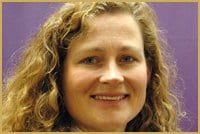On two of the occasions Grace Owens sought health care services in major city areas-once in her mid-40s, the other in her 60s-the outcomes were nothing short of nightmarish.
In 1985, at St Michael’s Hospital in Toronto, Owens’ already stressful dialysis appointment turned offensive when a social worker found out she was a lesbian, after asking about her marital status and sex life.
“I walked down [to where] they change the [dialysis] tubing,” Owens recalls. “There were three nurses there and the speaker phone was on. All of them were hearing the news that that woman was a lesbian…. I was so upset. After that, one of the nurses wouldn’t come near me.”
Cut to 2002: Owens, then 62 and living in Vancouver, endured a repeat performance of the discriminatory treatment she received at St Michael’s, but this time at St Vincent’s Hospital which catered specifically to the health care needs of seniors.
A fractured pelvis, sustained when she fell while getting off a downtown bus, eventually landed her in the care of a nurse who insisted she recognized Owens from somewhere. Owens, an activist for senior issues, mentioned she had recently appeared on the front page of a Burnaby newspaper that covered a seniors’ walk in which she was interviewed about life as an older gay person.
From that moment, the nurse did her best to minimize contact with Owens, telling her it was time she learned to get in and out of bed on her own.
By contrast, the experiences of partners Doreen Rowley and Ellen Sheare with Vancouver’s health care system have been “just great” generally, according to Rowley. Except for the time Rowley took Sheare, who has Huntington’s disease, for an MRI at Vancouver General Hospital. She didn’t expect one of the nurses to assume she was Sheare’s mother.
“I’m living on the edge as it is, and then you say something like that… I just blow my stack. I mean, why would they [assume that]?” asks Rowley, who has been in a relationship with Sheare for the past 39 years.
Owens’ and Rowley’s testimonies are part of a first-of-its-kind study of the health and social service needs of gay and lesbian seniors and their families in Canada, conducted by the McGill University School of Social Work over a five-year period, beginning in 2001.
Project research coordinator Liz Meyer flew in from Montreal to present her findings to a Vancouver audience, Mar 23. She says the two women’s experiences are typical of the responses received from the 38 seniors interviewed in Halifax, Montreal and Vancouver for the project.
“It brought me to tears sometimes to hear the painful experiences but to also realize that many gay seniors spoke about their experiences from a position of strength and resilience in the face of discrimination and invisibility,” Meyer says.
“Very often those receiving care did not want to be seen as victims, but as survivors, as people of strength, that they continue to carry on despite the discrimination.”
In many instances, Meyer notes, seniors would approach health care facilities expecting a homophobic environment, informing medical personnel of their sexual orientation to give practitioners the option of not handling their case.
Burnaby resident Roak Citroen didn’t even bother trying to get help from what he assumed would be a discriminatory, unsympathetic health care system.
For the first few years of his partner Jerry Mason’s battle with a genetic liver disease, he decided to go it alone, handling all of his ailing partner’s needs himself-until it began to compromise his own well-being.
Citroen told the McGill researchers he was in a state of near collapse, caring 24 hours a day for his partner of 44 years. But the fear of being separated from one another if they allowed health authorities into their lives loomed large enough in the couple’s minds to delay reaching out for assistance.
“I was petrified of asking for help. I come from the old school. There were lots of problems [when I was young]. Never personally. I was lucky. But there is an inbred fear.”
But his family doctor kept at him to get help and assured him his fears were misplaced. Citroen eventually relented and says his experience with the Fraser Health Authority was “fantastic.”
Within a month, health and social service professionals, including a physiotherapist, home care personnel and a doctor, were beating a path to his door to provide the support he and his partner needed.
“When the nurses knew it was a matter of time, they were more concerned about me. They said I should sleep in the same bed as Jerry.”
A week later, Mason passed away.
Meyer says Citroen’s initial reluctance to reach out is common among gay seniors and their primary caregivers when failing health becomes an issue.
What surprised Meyer most was the lack of interest among health care providers for gay-sensitivity training. The post-study focus will focus on advocacy for culturally sensitive care for gay seniors, increasing seniors’ social and political voice, and training for health care and social service providers.


 Why you can trust Xtra
Why you can trust Xtra


